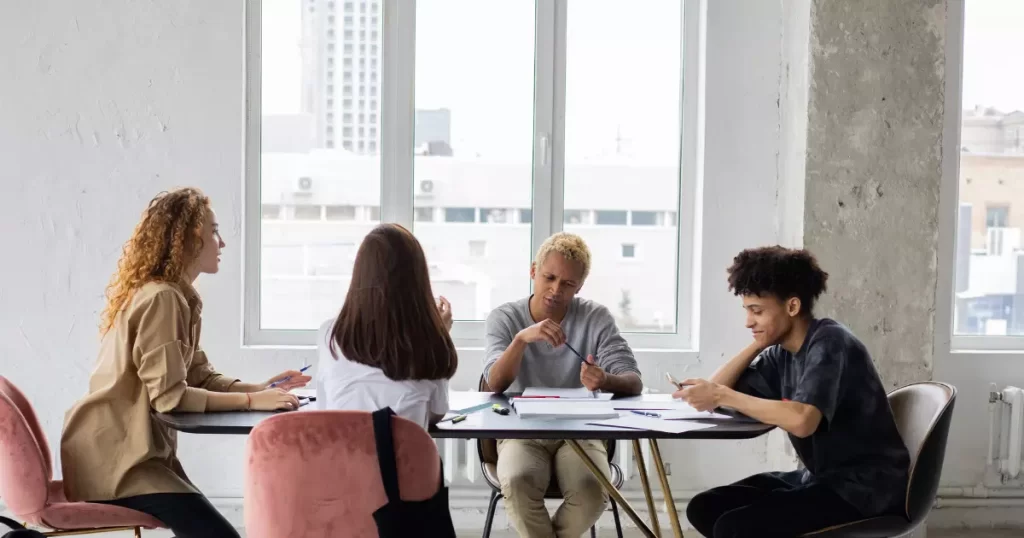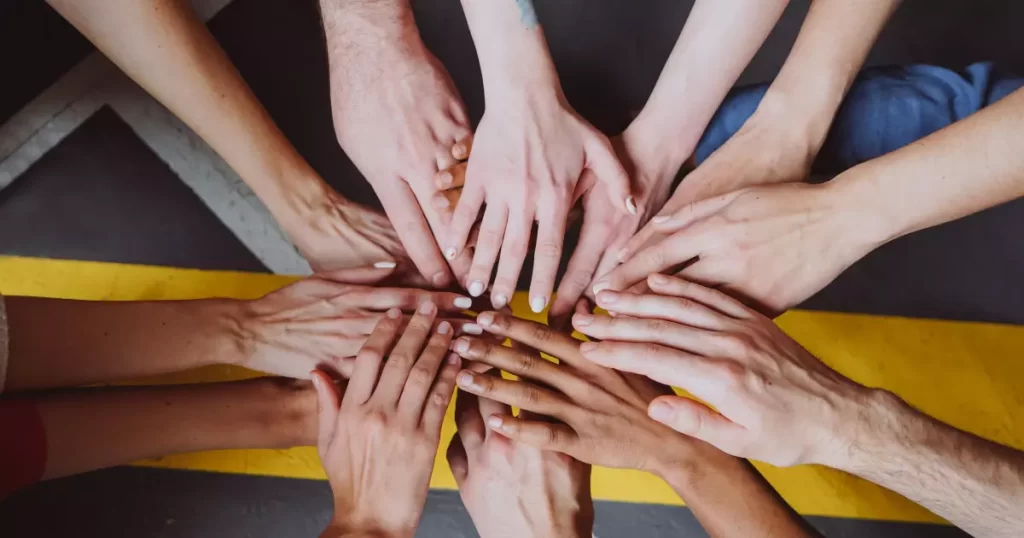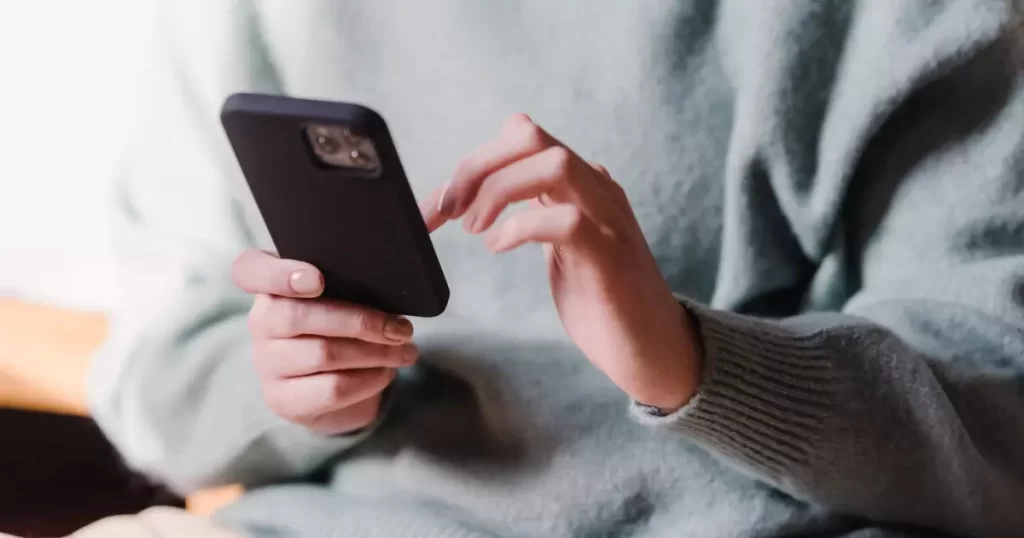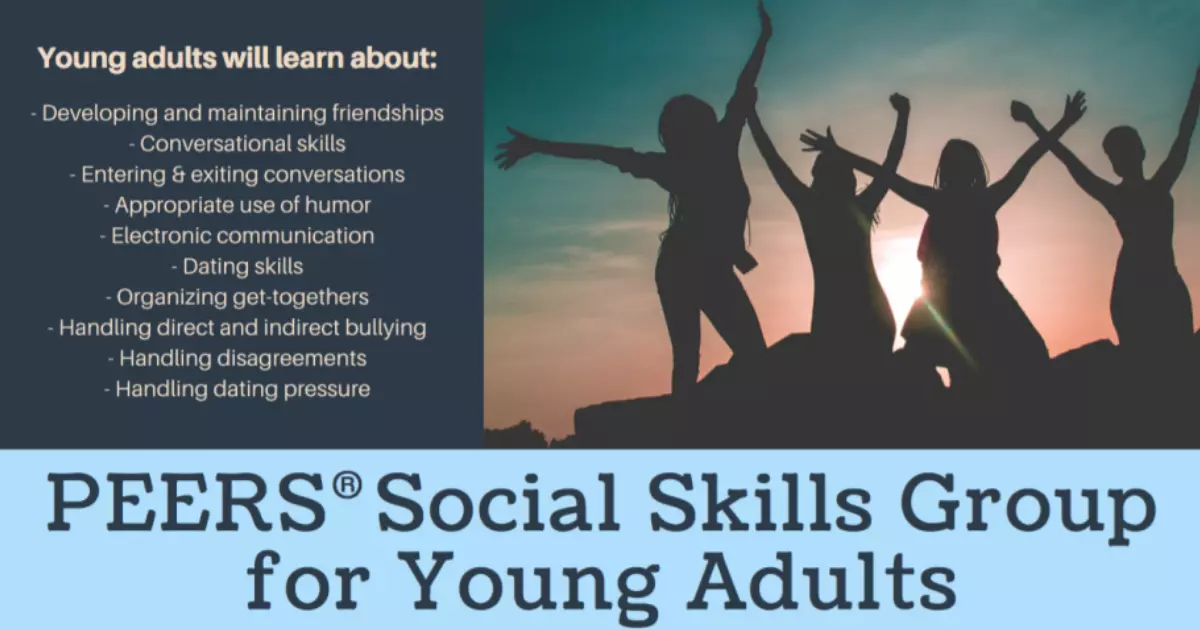Navigating social interactions can be challenging for young adults, especially those with social communication and interaction difficulties. The Program for Education and Enrichment of Relational Skills (PEERS) is an evidence-based training program for social skills designed to help young adults with social challenges improve their social skills and relationships.
This program teaches practical skills for understanding and navigating social situations, such as conversation skills, handling peer conflict, and making and keeping friends. PEERS also includes coaching for parents to support their child’s social development.
In this written blog, we will dive into the benefits of the PEERS program and how it can help young adults improve their social skills and overall quality of life.
What is the PEERS Social Skills Program?
The PEERS program at UCLA is a scientifically-proven social skills intervention designed for individuals who struggle with social communication and relationships. Developed at UCLA, the program teaches evidence-based strategies and techniques for social success, including conversation skills, nonverbal communication, and building and maintaining friendships.
Conversation Skills

Conversation skills are crucial to effective communication in both personal and professional settings. Being able to initiate, maintain, and end a conversation appropriately can significantly impact the quality of relationships and opportunities in life.
In this section, we will explore essential conversation skills.
How to Initiate and Maintain Conversations
Practical communication skills are essential for building relationships and achieving success in professional and personal settings. One of the most critical communication skills is initiating and maintaining conversations. To initiate a conversation, starting with a friendly greeting or a question to show interest in the other person is essential. Active listening, asking open-ended questions, and sharing personal experiences is vital to maintaining a conversation.
Using Appropriate Body Language & Eye Contact
Body language and eye contact are critical elements of effective communication that can significantly impact how a message is received. Using appropriate body language, such as maintaining an open posture, leaning forward, and nodding, can show engagement and interest in the conversation. Similarly, making eye contact can convey confidence, sincerity, and trustworthiness.
Avoiding Interrupting Others
Interrupting others during a conversation is a common barrier that can hinder effective communication and damage relationships. Interrupting can show a lack of respect for the other person’s thoughts and feelings and make them feel undervalued. Being an active listener is crucial to avoid interrupting and means paying attention to the other person’s words, nonverbal cues, and tone of voice.
Active Listening Skills
Active listening is a crucial communication skill that concentrates entirely on what the other person says verbally and nonverbally. The active listening aims to understand the speaker’s message, perspective, and feelings without interrupting or judging. The active listeners pay attention to the speaker’s words, tone of voice, and body language and use this information to respond appropriately. It’s essential to focus on the speaker, maintain eye contact, and avoid distractions in order to be an active listener.
Managing Small Talk
Small talk is a type of conversation that occurs in social situations and can range from discussing the weather to sharing personal anecdotes. While small talk can feel trivial, it’s essential to building relationships and establishing connections. Manage small talk by having a variety of topics to discuss, such as current events, shared interests, or experiences. Additionally, actively listening to the other person and appropriately responding can help keep the conversation flowing naturally.
Dealing With Awkward Silence
Awkward silence can occur during conversations, and while they can be uncomfortable, they don’t have to derail the conversation. One strategy to deal with awkward silences is acknowledging them directly and using humor to diffuse the tension. Another approach is to ask open-ended questions to encourage the other person to share more about themselves. Reflecting on the conversation and discussing common interests can also keep the conversation flowing.
Appropriate Use of Humor
Humor can be a powerful communication tool, helping build rapport, relieve tension, and convey positive emotions. However, using humor appropriately is essential, as inappropriate or offensive jokes can harm relationships and undermine credibility. One way to ensure the appropriate use of humor is to be mindful of the audience and context.
Handling Disagreements
Disagreements are a standard part of communication and can occur in personal and professional relationships. When handling disagreements, it’s important to remain respectful and focus on the issue rather than the person. Using active listening skills and asking clarifying questions can help understand the other person’s perspective. Finding common ground and compromising can also help reach a mutually beneficial solution.
Handling Direct and Indirect Bullying
Bullying is a pervasive problem that can occur in personal and professional settings. Direct bullying involves aggressive and intentional behavior, such as physical violence, while indirect bullying involves subtle and covert behavior, such as exclusion or gossiping. Addressing the behavior directly and assertively is essential when handling direct or indirect bullying. Setting clear boundaries and consequences for the behavior can help discourage future incidents.
Friendship Skills

Having strong friendship skills is essential for building and maintaining meaningful relationships. From communication and active listening to managing conflict and showing empathy, many vital skills can help individuals create and sustain healthy friendships.
In this section, we’ll explore critical friendship skills and strategies that can help individuals form and maintain lasting connections with others.
Identifying Common Interests
Identifying common interests is a vital friendship skill that can help individuals establish connections and build relationships. To identify common interests, individuals can engage in activities that interest them and meet new people with similar interests. Sharing common interests allows individuals to engage in activities and conversations that they both enjoy, helping to strengthen their bond.
Showing Interest in Others
Showing interest in others is a vital friendship skill that involves actively engaging with others and demonstrating empathy. This skill helps create a safe and supportive environment for the other person, revealing their thoughts and feelings are valued. When individuals show interest in others, they ask questions, actively listen to responses, and offer support and encouragement.
Planning and Organizing Social Outings
Planning and organizing social outings are valuable friendship skills that demonstrate initiative and consideration for others. This skill involves understanding the preferences and needs of friends, choosing appropriate activities, and coordinating logistics such as transportation and timing. When individuals take the lead in planning social outings, they value their friends’ time and interests.
Handling Rejection and Conflict
Handling rejection and conflict is an essential friendship skill for individuals to maintain healthy relationships. Rejection and conflict are common in any type of relationship, including friendships. Knowing how to handle these situations can help prevent misunderstandings and maintain friendships. Effective communication is a key component in handling rejection and conflict. Listening to the other person’s perspective and expressing oneself clearly and respectfully can help to diffuse tense situations.
Developing Empathy
Developing empathy is a crucial friendship skill that can improve relationships and deepen connections. Empathy allows individuals to understand and share the feelings of others, which can help to create a sense of mutual support and respect. Listening to others and trying to understand their perspective is crucial to developing empathy. Empathy involves being present in the moment and putting oneself in the other person’s shoes.
Maintaining Friendships
Maintaining friendships is a critical friendship skill that requires effort and dedication. Time constraints and life changes can all impact a friendship, but staying connected can help sustain relationships. Regular communication, whether through phone calls, text messages, or in-person visits, can help to keep friendships alive. Additionally, being supportive, empathetic, and available when needed can show one is committed to the friendship.
Online Electronic Communication
Electronic communication is a valuable friendship skill that allows individuals to stay connected, even when physically distant. Electronic communication includes various forms of technology, such as social media, text messages, emails, and video calls. Utilizing these tools to stay in touch helps maintain friendships and create a sense of closeness. However, it’s important to remember that electronic communication cannot replace face-to-face interaction, and balancing both forms of communication is essential.
Using Social Media

Using social media can be a valuable friendship skill that allows individuals to stay connected, share experiences, and create meaningful interactions. Social media provides a platform for individuals to maintain friendships, even when physically distant. It allows individuals to share photos, updates, and thoughts with their friends in real-time. It also will enable individuals to discover new common interests and connect with others who share them.
Dating Skills
Dating can be a fun and exciting experience; however, sometimes, it can be challenging and stressful. In order to navigate the dating world, it’s important to have a set of dating skills. These skills can help individuals to communicate effectively, build healthy relationships, and avoid common dating pitfalls.
Let’s explore the essential dating skills everyone should know to make the most of their dating experiences.
Identifying Romantic Interests

Identifying romantic interests is a crucial dating skill in recognizing attraction and compatibility with others. This skill also involves observing others’ body language and verbal cues to determine if there is mutual interest. It’s essential to be honest about desirable qualities in a partner and what kind of relationship you seek.
Reading Nonverbal Cues
Reading nonverbal cues is an essential dating skill that involves interpreting body language and other nonverbal behaviors. Nonverbal cues can provide important information about a person’s emotions and level of interest, even if they did not explicitly state them. Reading nonverbal cues can help individuals determine if their date is enjoying their company or if they are uncomfortable or disinterested.
Handling Rejection and Breakups
Handling rejection and breakups is a vital dating skill that can help individuals to cope with the ups and downs of dating. This skill involves communicating openly and respectfully with partners about feelings, acceptance, and moving on from rejection or a breakup in a healthy way. Rejection and breakups are common in the dating world, and knowing how to handle them can prevent them from causing long-lasting emotional damage.
Coping strategies may include:
- Seeking support from friends or a therapist;
- Deep breathing and mindfulness;
- Engaging in self-care activities;
- Reframing negative thoughts
Developing and Maintaining Healthy Relationships
Developing and maintaining healthy relationships is a vital dating skill that involves building solid connections with others. This skill requires individuals to communicate effectively, show empathy, respect boundaries, and be committed to their partner’s well-being. It’s essential to be aware of personal needs and preferences, as well as those of the partner, and to be willing to compromise when necessary.
Understanding Consent and Boundaries
Understanding consent and boundaries is a critical dating skill that involves respecting and recognizing personal and partner limits. Consent refers to giving explicit permission for any physical or emotional actions, while boundaries define what is and is not acceptable behavior in a relationship. Understanding and communicating about consent and boundaries can create a safer, more respectful dating experience.
The Benefits of the PEERS Program
PEERS is a social skills training program for adolescents and young adults with social difficulties, including autism spectrum disorder (ASD). This highly structured, evidence-based program provides participants with skills and strategies to improve their social communication, empathy, and friendships.
In this section, we will explore the benefits of the PEERS program and how it can enhance the social skills and overall quality of life of individuals with social difficulties.
Improved Social Skills and Communication
Improved social skills and communication are vital benefits of the PEERS program. The program emphasizes the importance of social reciprocity and teaches individuals to be attentive to others’ needs and perspectives. Participants in the program learn various skills and strategies to enhance their social communication, including making and maintaining friendships, starting and ending conversations, and interpreting nonverbal cues. By developing these skills, participants are better equipped to navigate social situations and build positive relationships.
Increased Self-Esteem and Confidence
Increased self-esteem and confidence are additional benefits of the PEERS program. Participants develop self-awareness and become more comfortable in social situations by learning and practicing social skills. As they see the positive impact of their improved social skills, they gain confidence and feel more self-assured in their interactions. The PEERS program also includes opportunities for participants to practice their new skills in real-life situations, which can further boost their self-esteem and confidence.
Reduced Anxiety and Depression
Reduced anxiety and depression are additional benefits of the PEERS program. Social interactions can be a significant source of stress and anxiety for individuals with social difficulties. The PEERS program’s structured and supportive environment can help alleviate these feelings by providing participants with concrete strategies to navigate social situations. This program emphasizes the importance of social support and encourages participants to seek out and maintain positive relationships with others.
Enhanced Academic and Employment Outcomes
Enhanced academic and employment outcomes are additional benefits of the PEERS program. Strong social skills are increasingly recognized as a critical factor in academic and career success, enabling individuals to build relationships with peers, mentors, and colleagues. The PEERS program helps participants develop these skills, improving their collaboration, communication, and problem-solving skills. The improvement of social skills can enhance job readiness and performance and support academic achievement.
Improved Quality of Life and Relationships
Improved quality of life and relationships are two significant benefits of the PEERS program. Participants in the program report increased confidence in social situations, better relationships with peers and family members, and a greater sense of belonging in their communities. These improvements can lead to a more fulfilling and satisfying life with less stress and isolation.
Who Can Benefit from the PEERS Program?
The Program for the Education and Enrichment of Relational Skills is designed for individuals with social communication challenges, including those on the autism spectrum, with ADHD, anxiety, depression, and other related conditions. PEERS can benefit anyone struggling to make and maintain friendships, initiate conversations, and read social cues. The program is suitable for individuals of all ages, from children to adults.
Young Adults with Social Challenges
PEERS is a social skills training program for children, adolescents, and young adults with social challenges such as autism spectrum disorder, attention-deficit/hyperactivity disorder, anxiety, and depression. PEERS program for young adults teaches evidence-based social skills to improve communication, problem-solving, and decision-making abilities in various social situations. The young adults who participate in the PEERS program for social skills have shown significant improvements in their social skills, including better initiation and maintenance of conversations, increased use of appropriate social cues, and improved understanding of social norms.
Young Adults with Autism Spectrum Disorder
Young adults with Autism Spectrum Disorder (ASD) often struggle with social communication and interaction, leading to difficulties in making and maintaining friendships, developing romantic relationships, and succeeding in educational and professional settings. The PEERS program is an evidence-based social skills training program specifically designed to help individuals with ASD improve their social communication and interaction skills while still honoring their neurodivergence.
Young Adults with Attention-Deficit Hyperactivity Disorder
Young adults that struggle with Attention-Deficit Hyperactivity Disorder (ADHD) often struggle with social communication and interaction, leading to difficulties in making and maintaining friendships, developing romantic relationships, and succeeding in educational and professional settings. The PEERS program is an evidence-based social skills training program specifically designed to help individuals with ADHD improve their social communication and interaction skills.
Young Adults with Anxiety or Depression
Young adults with anxiety or depression often struggle with social communication and interaction, leading to isolation and exacerbating their mental health challenges. The Program for the Education and Enrichment of Relational Skills (PEERS) is an evidence-based social skills training program that effectively improves social skills and reduces symptoms of anxiety and depression. The program provides practical tools and strategies for understanding and navigating social situations, including how to start and maintain conversations, make friends, and handle disagreements.
Young Adults with Communication or Behavioral Difficulties
Young adults with communication or behavioral difficulties may struggle with social interactions and relationships, leading to social isolation and problems in various aspects of their lives. The Program for the Education and Enrichment of Relational Skills (PEERS) is an evidence-based social skills training program that can benefit these individuals. PEERS for young adults teach practical skills for understanding and navigating social situations, including initiating and maintaining conversations, reading social cues, and making and keeping friends.
The PEERS Program Methodology
The Program for the Education and Enrichment of Relational Skills (PEERS) is an evidence-based social skills training program designed for adolescents and young adults with social challenges. The program is based on a cognitive-behavioral approach and incorporates elements of social learning theory.
The program’s methodology provides practical tools and strategies for understanding and navigating social situations, including instruction on social rules, conversation skills, and handling peer conflict.
The participants also engage in role-playing and other interactive activities to practice social skills in a safe and supportive environment. The program includes coaching for parents to help support their child’s social development. The PEERS program has been extensively researched and shown to effectively improve social skills and reduce social anxiety in participants.
How to Find a Certified PEERS Provider?
Finding a certified PEERS provider is crucial for young adults who want to participate in the program and improve their social skills.
Dr. Burns at Burns Virtual Psychological Solutions is a certified PEERS® Young Adult provider.By reaching out to us and participating in our 16 week online PEERS program, young adults with social challenges can gain the practical skills and confidence they need to navigate social situations and form meaningful relationships. Contact us to learn more!









